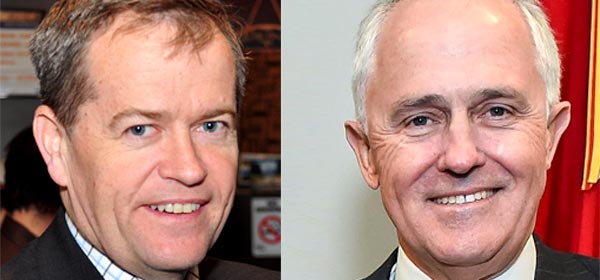After eight long weeks of election campaigning, Australia must wait another few days at least to find out who will lead the country for the next three years (or until that party has a leadership spill).
At the current time, the Labor Party has 67 seats, the Coalition 65, and five awarded to minor parties. With 13 seats still to be counted, the Coalition must win 11 to form a government in its own right or face forming an alliance with crossbench MPs. While Labor needs only nine to form government, these are not expected to be forthcoming.
Despite promising ‘jobs and growth’ and economic stability, it seems the Coalition has fallen foul of Labor’s dubious, if effective, ‘Mediscare’ campaign. While some will question the legality of running such a campaign, many voters appear to have accepted the prospect of Medicare privatisation under Malcolm Turnbull’s watch.
All this may have bruised the current Prime Minister, but he remains confident that his government will prevail. Speaking on Sunday, he said, “Like all of us, Australians would have no doubt preferred a clearer outcome last night,” Mr Turnbull said. “I remain quietly confident that a majority Coalition government will be returned.”
And while we must wait until Tuesday before counting recommences, Mr Turnbull believes it will be the postal and early votes that will push the Coalition over the line.
“Now, as you know, our experience is that these postal votes and pre-poll votes, indeed, traditionally favour Liberal and National Party candidates, especially when they are incumbents.”
Should the Coalition fall short, Mr Turnbull may have to look to his adversary to help provide stability for the country. Stressing that Labor would not form a Coalition government with the Greens, Labor leader Bill Shorten declared that Mr Turnbull should look no further than him to find some “common ground”.
“If Mr Turnbull would go back to being the centrist he used to be before he rolled Tony Abbott, I have no doubt there is some common ground we can work with them,” he said.
“It should not be beyond the pale of the Liberals to look at what they can do together with the Labor Party.”
Independents Andrew Wilkie and Cathy McGowan have ruled out working with any of the major parties, but not Bob Katter, who has already drawn up a list of issues he wishes to discuss. Nick Xenophon refused to speculate how a government might be formed while Greens’ Richard di Natale said he was ready to chat. “The mobile is charged and I’m waiting for the call and we’ll deal with that in the coming days,” Mr di Natale said.
Read more at ABC.net.au
Opinion: The leadership void
With neither Bill Shorten nor Malcolm Turnbull able to deliver victory for the their respective parties on Saturday, the knives are well and truly sharpened, with calls for both to the replaced.
As soon as it was clear that Mr Turnbull was struggling for numbers, News Limited columnist Andrew Bolt declared that it was time the Prime Minister packed his bags. But before Scott Morrison or Julie Bishop throw their hats in the ring, he believes that only Tony Abbott can save the country. Heaven help us.
And this morning another News Limited journalist, Terry McCrann, called for Mr Turnbull to go immediately, even if he does manage to scrape through a result for his party.
Mr Shorten can’t rest easy either, with the police probing a text message scandal that saw Labor’s Queensland branch send text messages to voters, that looked like they had come from Medicare: “Mr Turnbull’s plans to privatise Medicare will take us down the road of no return. Time is running out to save Medicare.”
Should Mr Shorten fail to form a government, it is rumoured that Anthony Albanese could be persuaded to challenge the leadership of the party.
In a time when we need stability, it seems our political landscape is crumbling. Back in September when he challenged Tony Abbott for the leadership, Mr Turnbull was considered by many to be ‘a great hope’. The man who would not only save the ailing Coalition government but who would also lead with an even hand, making decisions that were the best for the country, not just those with vested financial interests.
What is now apparent is that Mr Turnbull should have ridden that wave of popularity straight to the polls last year, rather than have his credibility eroded by the deals he struck with the party’s more conservative members to secure their support.
Not only do we face a wait to see how our next government will be formed, we will have to see whether or not Mr Turnbull can hold onto the top job and if Bill Shorten will be a worthy adversary.
If the Coalition manages to form government, should Malcolm Turnbull remain Prime Minister? Do you think the rise of the Labor Party is indicative of Mr Turnbull’s poor performance? Should we have a second vote if the result is too close to call?
Related articles:
Election 2016: do you care?
What will your vote cost?

